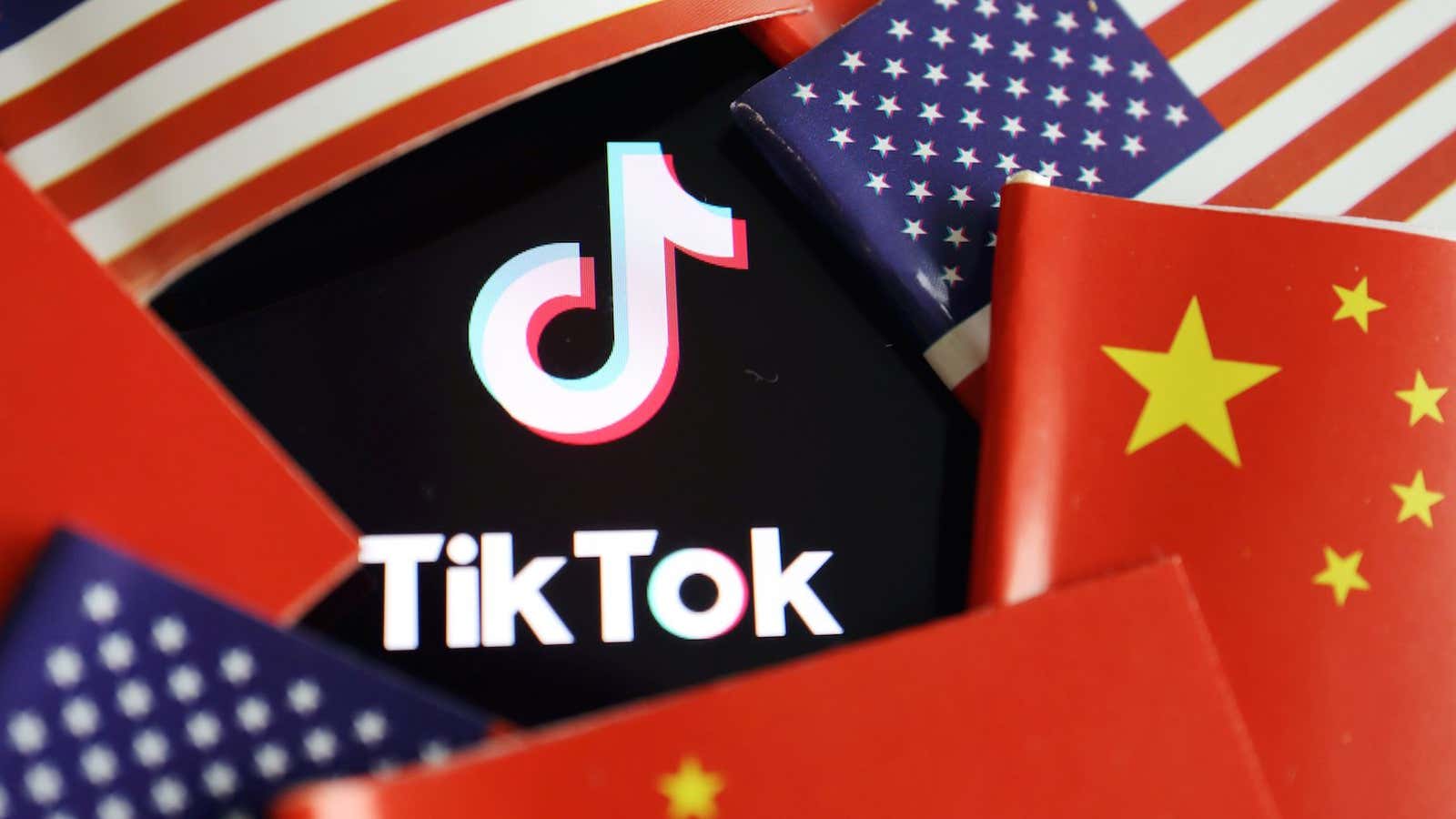The TikTok “sale” is turning out to be an object lesson in what you get when governments broker tech deals. It’s not a sale, it may not address the concerns a sale was supposed to address, and the winning company—if there even is one—may end up with real regrets.
Citing national security concerns, the Trump administration last month issued an executive order requiring that the short video app at the center of US-China tensions be sold to a US buyer or face being shut down. Last week the US president said the app faced a deadline of Sept. 15. The Wall Street Journal reported on Sunday (Sept. 13) that US software giant Oracle has apparently secured a deal to manage TikTok’s US operations. Neither company has issued a statement, but a tech giant that had appeared to be the frontrunner to acquire the app at one time, issued pointed remarks.
In announcing TikTok had rejected its offer, Microsoft appeared to imply that other bids wouldn’t deal with the issue of protecting user data as seriously as it intended to:
ByteDance let us know today they would not be selling TikTok’s US operations to Microsoft. We are confident our proposal would have been good for TikTok’s users, while protecting national security interests. To do this, we would have made significant changes to ensure the service met the highest standards for security, privacy, online safety, and combatting disinformation, and we made these principles clear in our August statement. We look forward to seeing how the service evolves in these important areas.
While the surprising development might look like a loss for Microsoft, which could have used the acquisition of a hit social media app with a young user base to expand its consumer-facing business, in reality it’s probably a good thing for the company.
For one, Microsoft can avoid putting a bulls-eye on itself, when it’s managed to keep a low profile and build strong relations in Washington even while continuing its long history of operating in China. But it’s quickly becoming clear that in certain businesses, there isn’t any way to stay on the good side of both governments. After all, Donald Trump’s trade adviser called Disney veteran Kevin Mayer, who was briefly TikTok’s CEO, an “American puppet,” while ByteDance has faced a wave of anger in China ever since it said it would accept a potential sale.
Secondly, managing a popular social media app amid fake news, disinformation campaigns backed by countries like Russia and China, and even just bouts of terrible judgment among its users, is another minefield. Even if Microsoft has more content moderation experience than Oracle, thanks to its platforms like LinkedIn, is it really ready for this?
Finally any deal will face sharp scrutiny from both Beijing and Washington, in the course offering the wooing company lots of opportunities to be penalized or just look excessively compliant with one government or the other (see how that’s worked out for Disney). China has already signaled it would rather see the app banned than allow a forced sale by issuing new tech export controls that cover the recommendation algorithms that drive TikTok’s success. ByteDance said it would abide by the new regulations. Beijing is now showing it could block even this far more limited arrangement, with the overseas arm of China’s state-run CCTV broadcaster reporting after the news of a possible Oracle deal that ByteDance “will also not sell TikTok’s U.S. operations to Oracle.”
Nor is approval in the US assured, even if the US president is on good terms with Oracle founder Larry Ellison. Unlike an outright sale, this is far from a clear win—whether the goal is ensuring data security or visibly clipping the wings of rising Chinese tech firm. Any arrangement that leaves TikTok’s inner workings opaque and largely in its own or ByteDance’s hands, wouldn’t address the fear that Beijing could put pressure on the Chinese parent for access to the app’s data. That could suggest Trump has been outfoxed.
“If Oracle merely acts as minority stakeholder and cloud provider, while ByteDance continues to run operations and share resources like moderation teams, it doesn’t really answer to any of the concerns of Chinese ownership and control,” said Daniel Sinclair, an independent social media researcher. “If the White House accepts bad terms, after igniting this chaotic process, [the administration] will surely face even more legislative scrutiny than an outright ban could face.”
